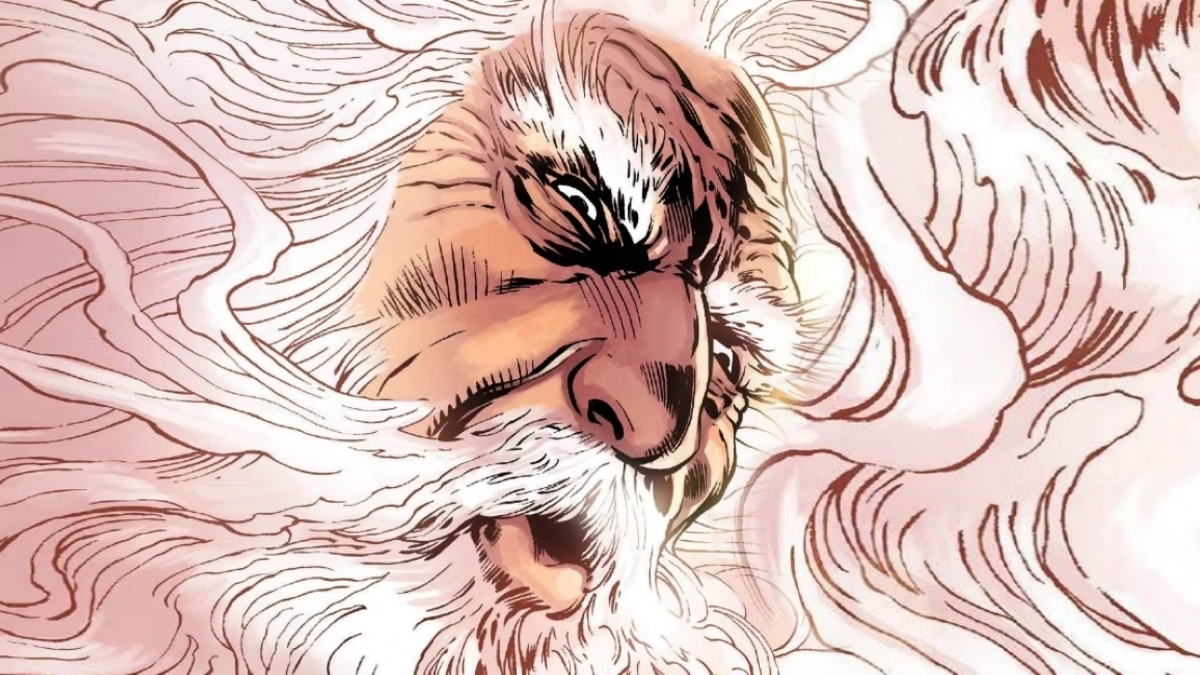The term "one above all" resonates deeply within various narratives, often representing the ultimate power or authority in fictional universes. From comics to literature, this phrase symbolizes an entity that surpasses all others in capability and significance. It embodies the idea of an all-encompassing force that governs the multiverse, offering a fascinating lens through which to examine our understanding of power and hierarchy.
In popular culture, "one above all" has been utilized to depict characters or forces that stand as the pinnacle of existence. These entities often serve as the final arbiter in matters of good and evil, representing hope and justice while wielding the power to reshape reality itself. As we delve deeper into this concept, we will explore its origins, significance, and manifestation in various forms of media.
Join us as we uncover the layers of the "one above all" through the lens of comic book lore, literature, and the broader implications of such a powerful entity in society. Whether through the pages of a graphic novel or the prose of an epic tale, the essence of the "one above all" continues to captivate audiences and inspire discussions about morality, authority, and the human condition.
What is the Origin of the One Above All Concept?
The concept of "one above all" can be traced back to ancient mythology and religious texts, where deities or supreme beings often held dominion over all creation. Over time, this idea has evolved into various forms across different cultures, but the core principle remains the same: a singular force or entity that embodies ultimate power.
How is One Above All Portrayed in Comics?
In the realm of comics, particularly within the Marvel Universe, the "One Above All" is often depicted as the supreme being who oversees all existence. This character is shrouded in mystery and rarely makes appearances, yet their presence is felt throughout the narratives.
- The "One Above All" is often viewed as the creator of the multiverse.
- This entity embodies the traits of compassion, wisdom, and omnipotence.
- Many characters, such as The Living Tribunal and Franklin Richards, operate under the influence of this supreme entity.
What Role Does One Above All Play in Moral Narratives?
The "one above all" often serves as a moral compass within stories, guiding characters toward the path of righteousness. This entity is seen as a representation of ultimate good, encouraging protagonists to strive for justice and integrity.
How Does One Above All Influence Literature?
In literature, the concept of the "one above all" manifests itself in various forms. From the archetypal hero to the omniscient narrator, these figures often reflect the qualities associated with ultimate authority and moral guidance.
Can You Identify One Above All in Popular Novels?
Many popular novels incorporate the "one above all" concept, whether explicitly or implicitly. These narratives often feature characters or forces that embody ultimate power or wisdom, influencing the journey of the protagonists.
- In J.R.R. Tolkien's Middle-earth, Eru Ilúvatar serves as the one above all, creating the world and its inhabitants.
- In C.S. Lewis's "The Chronicles of Narnia," Aslan represents a divine figure that embodies the essence of good.
- In many fantasy novels, the presence of an all-powerful being often guides the heroes in their quests.
What Are the Implications of One Above All in Society?
The idea of a "one above all" entity extends beyond fiction and into real-world philosophies. It raises questions about authority, governance, and the nature of power. The belief in a higher power can provide moral guidance, while also prompting debates about the legitimacy of earthly authorities.
How Can We Relate to the One Above All Concept?
As individuals, we often seek out figures of authority in our lives, whether they be leaders, mentors, or even fictional characters. The "one above all" concept allows us to reflect on our values and the ideals we aspire to. By recognizing the qualities of compassion, wisdom, and justice in these figures, we can strive to embody these traits in our own lives.
What Can We Learn from the One Above All?
The lessons imparted by the "one above all" extend beyond mere fiction. They encourage us to think critically about our roles in society and the impact of our actions. Here are some key takeaways:
- The importance of striving for justice and integrity.
- The value of compassion and understanding in our interactions with others.
- The need for humility in the face of greater powers and forces.
Conclusion: Why Does the One Above All Matter?
The concept of "one above all" transcends individual narratives, touching on universal themes of power, morality, and human ambition. It serves as a reminder that while we may not possess ultimate power, we can aspire to embody the values associated with it. As we continue to explore this concept in various forms of media, we are reminded of the enduring impact of the "one above all" on our collective consciousness.
You Might Also Like
Maria Branyas Morera: The Remarkable Journey Of A CentenarianLions Super Bowl Wins: A Dream Yet To Come True
Exploring The Depths Of Humility: A Thesaurus Journey
Peter Asher: A Journey Through Music And Influence
Lala Kent's Baby Daddy: Unraveling The Mystery Behind Her Relationship
Article Recommendations
- Valkyrae Naked
- Tina Trahan Age
- Jelly Bean Brains Only
- Auhneesh
- Richard Evonitz Kara Robinson
- Trinidad Valentin
- Ari Kytsya Leak
- 2 Actors Died Yesterday
- What Happened To Kurt Russell
- Is Michael Loftus Gay


